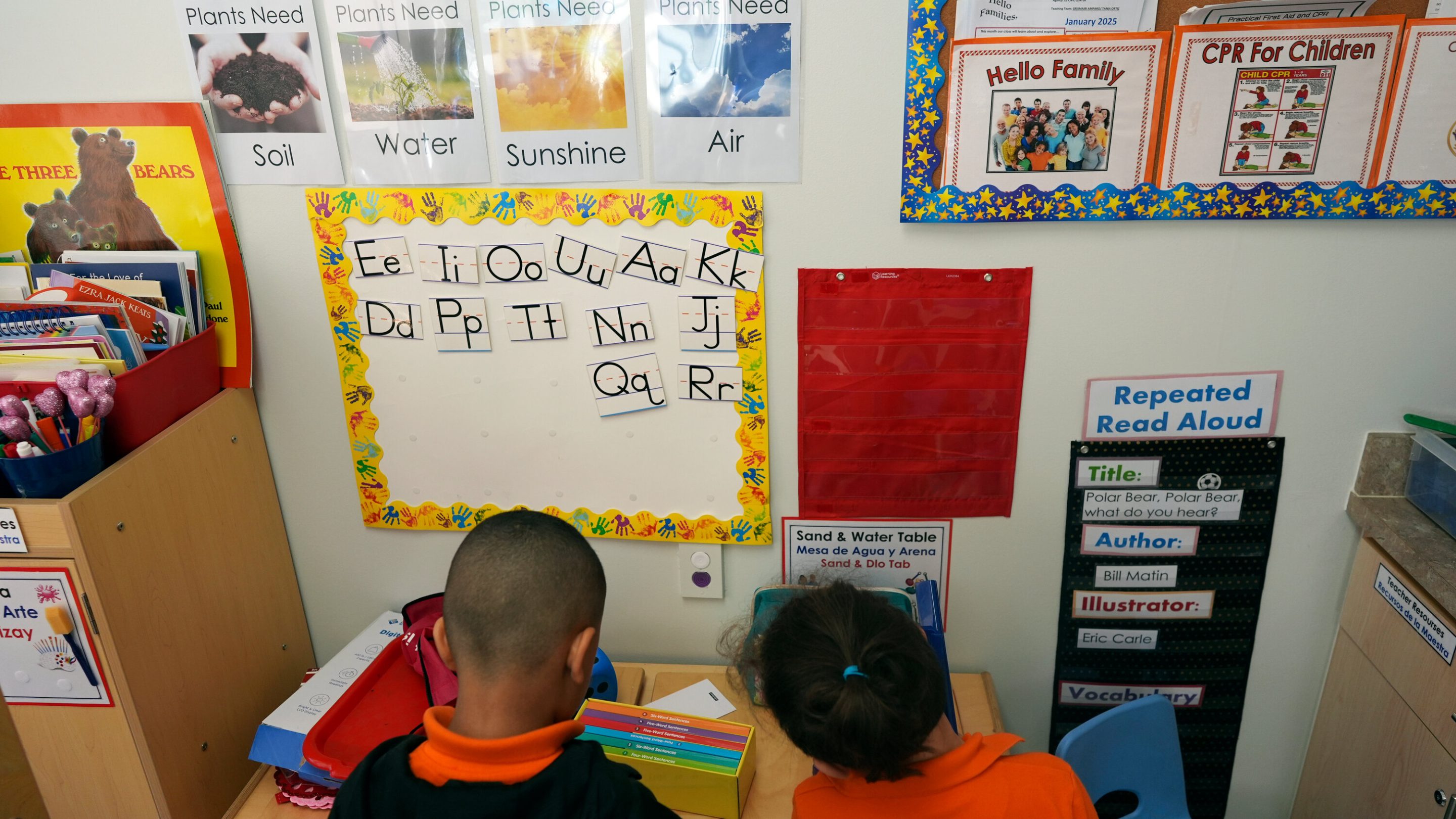Education Policy Brief #206 | Yelena Korshunov | August 2, 2025
Earlier this month, on Thursday, July 10, Health and Human Services Secretary Robert F. Kennedy Jr. announced that children of undocumented immigrants will no longer be allowed to attend Head Start—the free, federally funded program for low-income families that provides education, nutrition, and health services to 800,000 infants, toddlers, and preschoolers. Head Start is remarkable for enjoying bipartisan support for most of its 60-year existence.
In addition to the Head Start restrictions, the new rule immediately bars all undocumented individuals from accessing a range of federally funded programs, including community health clinics and energy assistance. A policy issued in 1998 had allowed undocumented immigrants to receive certain benefits aimed at low-income families with young children. However, in a recent news release, Kennedy declared that HHS (Health and Human Services) was rescinding that interpretation, limiting access to over a dozen federal programs under the agency’s jurisdiction. “For too long, the government has diverted hardworking Americans’ tax dollars to incentivize illegal immigration,” Kennedy said. “Today’s action changes that — it restores integrity to federal social programs, enforces the rule of law, and protects vital resources for the American people.”
Kennedy added that “Head Start grant recipients will be asked to determine eligibility for newly enrolled children based on the immigration status of the child.” However, no clear guidelines accompanied the announcement, causing widespread confusion among local program administrators. The National Head Start Association issued a statement noting that the program has never required proof of immigration status for enrollment. Yasmina Vinci, the association’s executive director, warned: “attempts to impose such a requirement threaten to create fear and confusion among all families who are focused on raising healthy children, ready to succeed in school and life. This decision undermines the fundamental commitment that the country has made to children and disregards decades of evidence that Head Start is essential to our collective future.”
The announcement has shaken the Head Start community, which hasn’t recovered yet from recent layoffs, funding cuts and threats to terminate the program entirely. Dr. Debra Duardo, L.A. County Superintendent of Schools, said the directive would have “a devastating impact not just on L.A. County, but for families and children across the nation.” “These initiatives have long been the bedrock for children from our most vulnerable communities, offering support, stability, and the opportunity to thrive,” she added.
The damage began months earlier. In April, HHS closed regional offices in Chicago, Boston, New York, Seattle, and San Francisco. In May, delayed Head Start grant approvals disrupted student enrollment across the country. Roughly 800,000 families were left scrambling to find alternative childcare. For many children, Head Start is their only source of fresh meals, climate-controlled classrooms, and early childhood education—including additional developmental support when needed.
Staff at the program were left in limbo. According to Reuters, around 50% of the Office of Head Start’s staff were laid off in April, and all employees at regional offices were dismissed. Casey Peeks, senior director of Early Childhood Policy at the Center for American Progress, noted:“We’re also seeing a lot of chaos and panic among Head Start staff. They don’t know if their jobs are as secure as they once were, which is really causing a problem, because it’s not just Head Start, but across the early childhood sector there is a workforce shortage and these types of concerns, lack of reliability, it really doesn’t help with the retention issues that are already a problem in normal circumstance.”
Following Kennedy’s announcement, twenty states and the District of Columbia filed lawsuits challenging the directive. In response, the federal government argued the rule was necessary to “ensure that public resources are no longer used to incentivize illegal immigration.”
Yet many advocates urge caution. Melissa Boteach, chief policy adviser for Zero to Three—a national nonprofit focused on the healthy development of babies and toddlers —said: “There’s still a lot of confusion about what exactly it means, and we’re encouraging people not to take action until there’s more guidance or clarity on who exactly it affects and what the Head Start programs are required to do.”
As of now, the Trump administration has temporarily paused enforcement of the policy barring undocumented children from attending Head Start programs.
Engagement Resources
- Head Start, https://headstart.gov/
- Trump Admin. Pauses Ban on Undocumented Kids in Head Start in These States, https://www.edweek.org/policy-politics/trump-admin-pauses-ban-on-undocumented-kids-in-head-start-in-these-states/2025/07
- Head Start faces new worries about its future with Trump, GOP, https://thehill.com/homenews/education/5420965-trump-administration-cuts-head-start/
- Trump administration violated the law by withholding some Head Start funds, congressional watchdog findshttps://cbsnews.com/news/trump-head-start-funds-congressional-watchdog/

